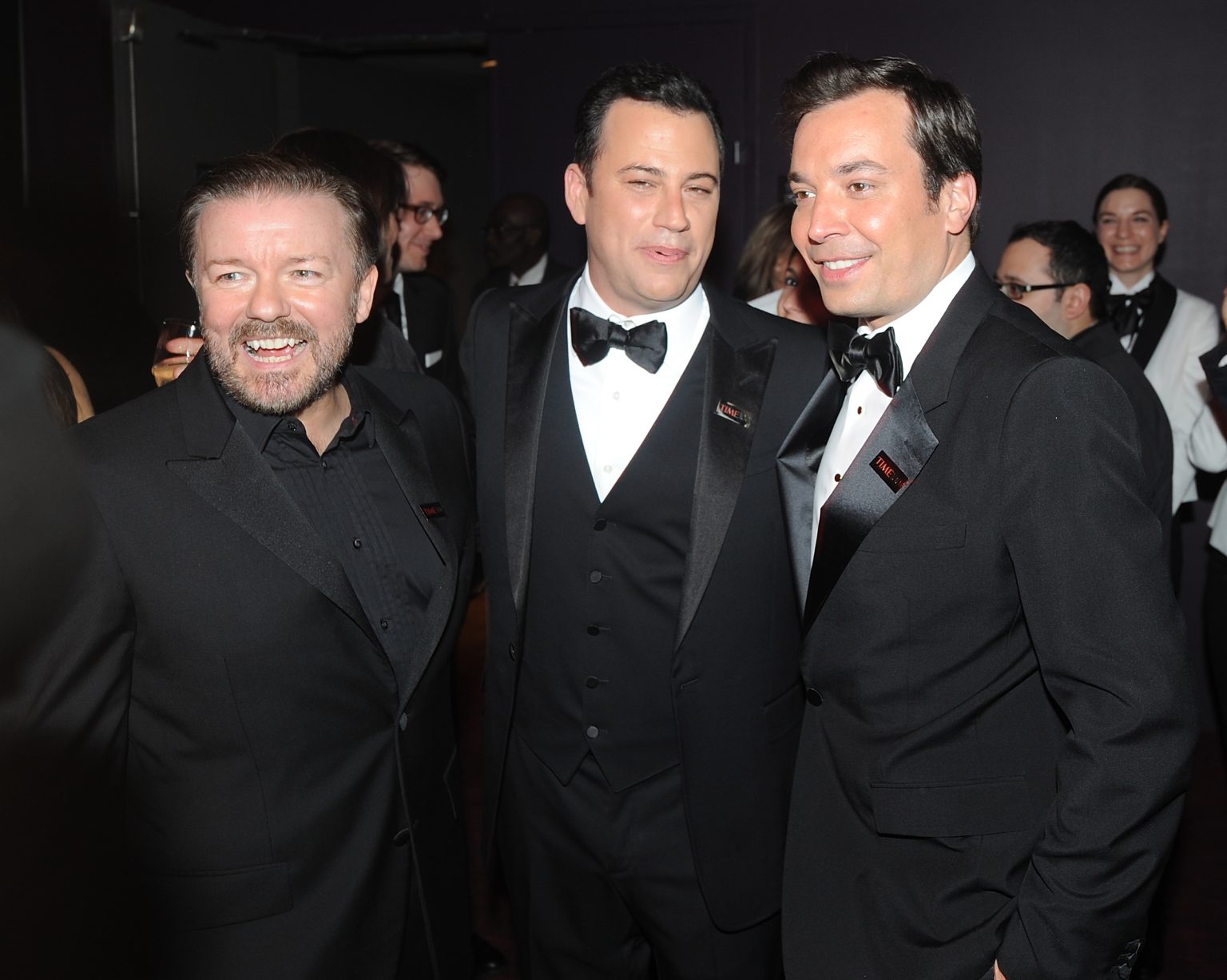Jimmy Fallon Shows Support for Suspended Colleague Jimmy Kimmel
In a recent episode of The Tonight Show, Jimmy Fallon addressed the sudden suspension of fellow late-night host Jimmy Kimmel, offering words of support during what has become a contentious media situation. “The big story is that Jimmy Kimmel was suspended by ABC after pressure from the FCC, leaving everyone thinking, ‘WTF?'” Fallon remarked, bringing his characteristic light touch to a serious industry development. Despite the controversy, Fallon emphasized his personal knowledge of Kimmel, describing him as “a decent, funny and loving guy,” and expressed hope for his colleague’s return to the airwaves. The moment highlighted the personal connections between late-night hosts who, despite being competitors for viewers, often maintain professional respect and friendship with one another.
The suspension stems from comments Kimmel made during his Monday night monologue regarding the assassination of conservative commentator Charlie Kirk. During his opening segment, Kimmel referenced what he called “new lows over the weekend, with the MAGA gang desperately trying to characterize this kid who murdered Charlie Kirk as anything other than one of them and doing everything they can to score political points from it.” He also mentioned criticism of the White House lowering flags to half-staff, adding that “on a human level you can see how hard the President is taking this.” These remarks apparently crossed a line for ABC and its affiliate partners, resulting in the unprecedented action against one of television’s most established late-night personalities.
The reaction from network partners was swift and decisive. Andrew Alford, president of Nexstar’s broadcasting division, released a statement calling Kimmel’s comments “offensive and insensitive at a critical time in our national political discourse.” Alford further explained that the network believed Kimmel’s remarks failed to “reflect the spectrum of opinions, views, or values of the local communities” they serve. This justification points to the delicate balance media companies must maintain in today’s polarized political environment, where comments about tragic events can quickly become flashpoints for controversy. The decision to “preempt his show in an effort to let cooler heads prevail” suggests an attempt to defuse tensions rather than an outright cancellation, though the indefinite nature of the suspension has raised questions about when—or if—Kimmel will return.
Fallon’s public support for Kimmel speaks to broader concerns about free expression in entertainment. In his comments, Fallon acknowledged the worry that late-night hosts might face increasing censorship, saying, “A lot of people are worried that we won’t keep saying what we want to say or that we’ll be censored.” However, he quickly pivoted to reassure his audience that he intended to continue with his usual approach, adding, “But I’m going to cover the president’s trip to the U.K. like I normally would.” This statement reflects the delicate position late-night hosts find themselves in—trying to maintain their comedic and sometimes political voice while navigating an increasingly fraught media landscape where comments can lead to serious professional consequences.
The situation highlights the evolving role of late-night television in American political discourse. For decades, these shows have served as a forum where hosts can offer commentary on current events with a humorous twist, occasionally pushing boundaries and addressing controversial topics. However, in an era of heightened political sensitivity and polarization, the traditional latitude given to comedians appears to be narrowing. ABC’s announcement that Kimmel’s show would be “pre-empted indefinitely” marks a significant moment in this evolution, potentially signaling to other hosts that certain topics or approaches may lead to similar consequences. The relationship between networks, their affiliates, advertisers, and the creative voices of their programs has always involved negotiation, but Kimmel’s suspension suggests that balance may be shifting toward more caution and restraint.
As this situation continues to develop, questions remain about the future of political comedy on television and the standards by which such content is judged. Fallon’s comments, though brief, reflect a sentiment likely shared by many in the entertainment industry—concern about potential chilling effects on expression, coupled with hope that established talents like Kimmel will find their way back to audiences. The incident serves as a reminder of the complex interplay between entertainment and politics in American culture, and how the boundaries of acceptable discourse continue to be negotiated in real-time. For viewers and industry insiders alike, the outcome of Kimmel’s suspension will likely be viewed as an important indicator of where those boundaries now stand in an increasingly divided media landscape.


